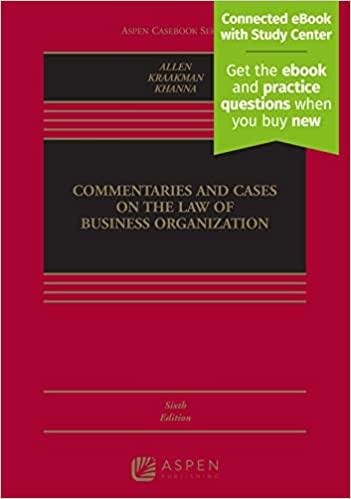Question
Jim, Bob, and Ed decide that they are short on money and are since they are roommates, they trust each other. They realize that since
Jim, Bob, and Ed decide that they are short on money and are since they are roommates, they trust each other. They realize that since their neighbor drives an expensive car, wears a lot of jewelry and regularly has boxes from new electronics outside for the garbage, he would be a home worth robbing. The three decide that they will work together to burglarize the house while the neighbor is away and split the proceeds three ways. Bob and Ed go in, Jim waits outside acting as a lookout, but nothing ever goes as planned.
After Bob and Ed go in, Jim suffers a full-on attack of morality, runs away and calls the police to report the burglary in progress. Ed is busily taking a flat-screen TV off the stand with his pockets full of gold necklaces when the neighbor's houseguest comes out of the bathroom. Bob panics, grabs a kitchen knife, and in an attempt to eliminate a witness, stabs the houseguest in the neck. Ed and Bob then run out the back door as the police arrive - and get arrested. Both later offer full, legally obtained confessions - they are very cooperative and remorseful fellows.
Which statutes apply to which individuals? Who is guilty of inciting? Who is guilty of conspiracy? Who is guilty of attempts - and attempts of what? Is anyone not guilty of anything? Who and why?
Step by Step Solution
There are 3 Steps involved in it
Step: 1

Get Instant Access to Expert-Tailored Solutions
See step-by-step solutions with expert insights and AI powered tools for academic success
Step: 2

Step: 3

Ace Your Homework with AI
Get the answers you need in no time with our AI-driven, step-by-step assistance
Get Started


